Opioid addiction is a devastating reality for millions worldwide, with its grip on individuals’ lives being both dangerous and difficult to escape. Recognizing the opioid addiction signs is pivotal in seeking help early on and can be life-saving. “Overdoses involving opioids killed more than 80,000 people in 2021” (Centers for Disease Control and Prevention [CDC], 2023), highlighting the urgent need for awareness and action. This introductory guide is specifically designed to demystify the symptoms and opioid addiction signs. By recognizing these warning signs, we can take proactive steps towards intervention, support, and recovery for those affected.
Table of Contents:
- Understanding Opioid Addiction Signs
- Identifying Opioid Addiction Through Behavioral and Physical Symptoms
- Navigating the Path to Recovery: Recognizing and Addressing Opioid Addiction
- Conclusion
Understanding Opioid Addiction Signs
Recognizing the opioid addiction signs is not always straightforward. Opioid misuse can start with a legitimate prescription for pain and subtly evolve into addiction. Knowing what to look for – from behavioral shifts to physical symptoms – is crucial for early detection and seeking appropriate treatment. Early opioid addiction signs might be subtle but can escalate quickly. Key things to watch out for include an increased tolerance to opioids, isolating behaviors, and a preoccupation with obtaining and using the substance. Recognizing these signs early in the progression of opioid misuse is vital in intervening and guiding someone towards recovery before the addiction becomes more entrenched and harder to overcome.
Identifying Opioid Addiction Through Behavioral and Physical Symptoms
Opioid addiction signs often manifest through a combination of behavioral changes and physical symptoms. Behavioral shifts may include neglect of responsibilities, withdrawal from social circles, and inexplicable mood swings, which are crucial in recognizing the pervasive nature of opioid addiction. Furthermore, specific psychological symptoms such as changes in sleep patterns, anxiety, and depression also significantly indicate the impact of opioid misuse.

Additionally, physical signs play a critical role in identifying opioid addiction. These signs include alterations in physical appearance, small pupils, decreased respiratory rate, non-responsiveness, drowsiness, fluctuations in appetite leading to weight loss or gain, and intense flu-like symptoms (nausea, vomiting, sweating, shaky hands, feet, or head, large pupils). Moreover, behaviors like wearing long-sleeves or hiding arms to conceal marks also underscore the urgency of observation (New York State Department of Health, n.d.). It’s imperative to recognize these signs of opioid addiction early as they provide crucial indicators for the need of intervention and support, aiming to address the addiction before it becomes more entrenched.
Navigating the Path to Recovery: Recognizing and Addressing Opioid Addiction
Identifying opioid addiction signs is only the first step; knowing when and how to seek help is vital for initiating the journey towards recovery. If you notice someone exhibiting signs of opioid addiction, your support can play a pivotal role in their recovery process. It’s important to approach the situation with empathy, understanding, and a readiness to direct them towards professional help. By learning the most effective ways to offer support, you reinforce your crucial role in their path to overcoming addiction and reclaiming control over their life. Recognizing the need for help and understanding how to provide it are key components in supporting a loved one’s recovery from opioid addiction.
Conclusion:
In summary, the opioid addiction signs range from subtle behavioral changes to pronounced physical symptoms. Understanding these signs enables early intervention, which can lead to successful recovery and a return to a healthier life. Vanguard Behavioral Health Specialists emphasize the importance of recognizing these patterns as early as possible for effective treatment. If you recognize these signs in yourself or someone you care about, don’t wait—reach out for professional support now. Remember, acknowledging the problem and seeking help from reputable sources like Vanguard Behavioral Health is a brave and necessary step towards healing.
Take action against opioid addiction. Contact a health professional to help navigate the path to recovery.
References:
Centers for Disease Control and Prevention. (2023). Data Overview – Opioids. Retrieved from https://www.cdc.gov/opioids/data/index.htmlNew York State Department of Health. (n.d.). Opioids: Recognizing the Signs. Retrieved from https://www.health.ny.gov/community/opioid_epidemic/signs.htm







